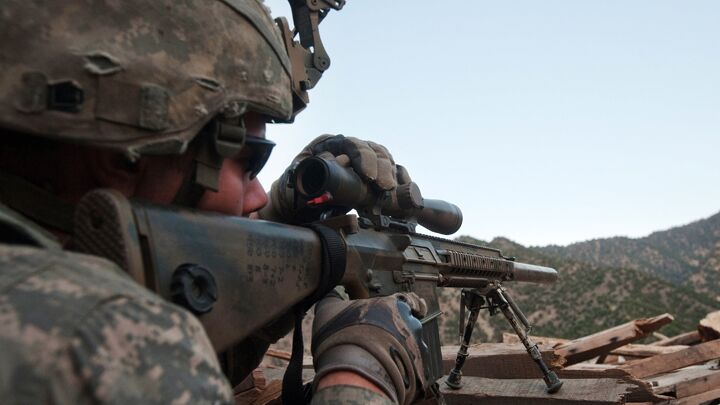
Drug Cartels Contracting U.S. Soldiers
Rich Mexican drug cartels can pretty much buy anything they want: private jets, helicopters, rifles, grenades and bazookas. They can also buy influence and loyalty, spies and assassins—and on either side of the border. Their latest market for the latter is the expertly trained U.S Army.
Last month, 22-year-old Michael Apodaca, a former private first class at Fort Bliss, Texas, was sentenced to life in prison for a $5,000 contract assassination he conducted in 2009. Both the victim and the contractor were members of the Juarez Cartel in Mexico who also were, to some extent, informants for the U.S. Immigration and Customs Enforcement agency.
Last November, 29-year-old Army 1st Lt. Kevin Corley, based at Fort Carson, Colo., agreed to a $50,000 assassination contract for hits in Laredo, Texas. Corley had to recruit his own team of assassins for the job. He even offered the cartel tactical training and stolen U.S. weaponry.
These examples show how easily military personnel can be lured to use their expertise on behalf of drug cartels. “We have seen examples over the past few years where American servicemen are becoming involved in this type of activity,” observed Stratfor’s Fred Burton. “It is quite worrisome to have individuals with specialized military training and combat experience being associated with the cartels.” The fbi noted that the Los Zetas—perhaps the worst of Mexico’s fanatically vicious cartels—“continues to recruit law enforcement, military and public officials to facilitate drug trafficking operations.”
The lure of money and the threat of death make it easier for cartels to appeal to military servicemen, especially those who may struggle to obtain civilian jobs after serving in combat zones. Corley, for example, received his assassination contract not long after returning from Afghanistan.
Rogue elements from the military have always been known to pose a security threat to the United States. In 2011, the fbi National Gang Intelligence Center identified members of at least 53 gangs who had ties to the U.S. military. This threat increases if these gang members form affiliations with barbarous Mexican cartels.
Imagine a powerful, brutal drug cartel embroiled in turf wars with an equally powerful rival cartel. Now, imagine that cartel deciding to recruit a special ops team from the military to beef up its security, offering remuneration much higher than the Army could. That shouldn’t be too difficult to imagine because that’s exactly what Mexico’s Gulf Cartel did in the late ’90s—only back then the Gulf Cartel was recruiting Mexican ex-military. The soldiers it recruited became its military arm, and called themselves Los Zetas. When the Gulf Cartel’s boss was arrested in January 2007, Los Zetas decided that it would be more lucrative for it to turn against its employers and start calling the shots.
Today, Los Zetas is one of the prominent cartels in Mexico. It is well established in the United States, and as Fred Burton noted, it has more capability than al Qaeda does to operate inside the United States. Today, cartels like Los Zetas are recruiting U.S. soldiers in a manner reminiscent of how its original members were recruited from the Mexican Army.
Mexican cartels are becoming a major threat to America. But in many ways, it is a self-inflicted threat.
In 2009, Trumpet columnist Brad Macdonald quoted a warning from 2008 by the U.S. Joint Forces Command: “[A]n unstable Mexico could represent a homeland security problem of immense proportions to the United States.”
In another article titled “Beheading Mexico,” Mr. Macdonald explained the primary reason the illicit drugs trade poses a security threat to us. It’s ultimately America’s love for drugs, he wrote, that finances and sustains Mexico’s drug cartels, and “America’s cultural acceptance of illicit drugs is a function of its overall rejection of absolute law and morality.”
The ultimate cause of drug violence reveals the ultimate solution. Some experts believe there’s no solution to the drug war—that it’s a conflict that can only be managed. But Mr. Macdonald explains the ultimate solution and the hope amid the seeming hopelessness in dealing with drug wars. It’s a simple solution that could work if implemented now; it’s a solution that will work when God forcibly implements it.
For more, read “Beheading Mexico” and “Mexico: Bordering on Collapse.”
